September 15 stands as one of history’s most eventful days, witnessing the rise and fall of empires, groundbreaking discoveries, and moments that shaped our modern world across centuries of human achievement.
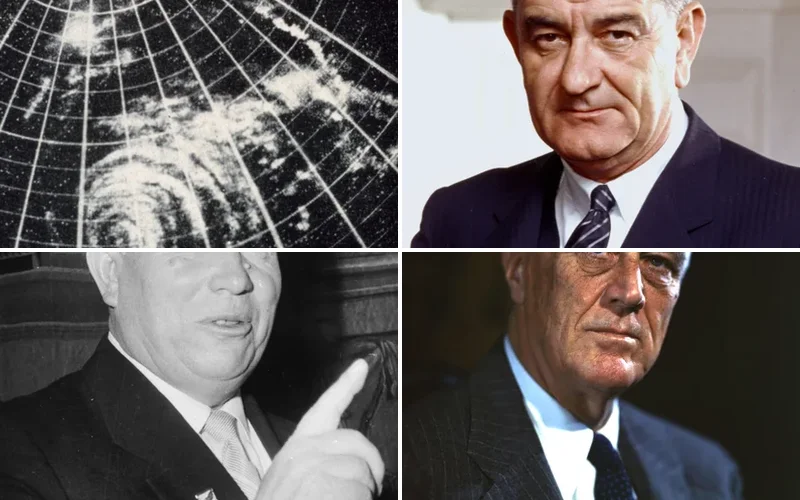
Politics and Government Events on September 15
1935 – Nazi Germany Adopts Swastika Flag
Adolf Hitler’s regime officially adopted the swastika as Germany’s national symbol through new flag legislation. This decision marked a crucial step in Nazi Germany’s visual propaganda campaign.
The flag change symbolized the complete transformation of German national identity under fascist rule. This governmental act would become one of the most recognizable symbols of the twentieth century’s darkest chapter.
1944 – Roosevelt and Churchill Meet at Octagon Conference

President Franklin D. Roosevelt and Prime Minister Winston Churchill convened in Quebec to discuss Allied strategy during World War II. Their meeting addressed crucial decisions about the war’s final phases and post-war planning.
The conference strengthened Anglo-American cooperation at a pivotal moment in global history. Their discussions would shape the Allied approach to defeating Nazi Germany and establishing post-war international order.
1959 – Khrushchev Becomes First Soviet Leader to Visit United States
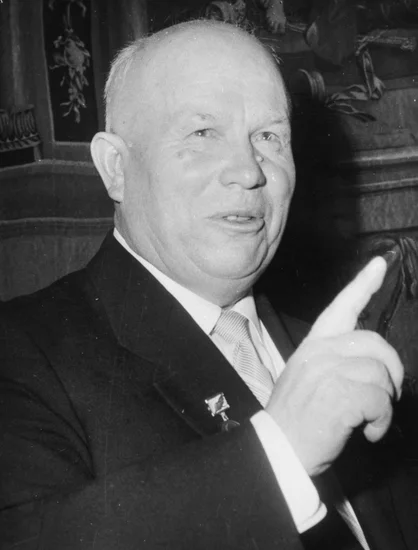
Soviet Premier Nikita Khrushchev embarked on a historic diplomatic mission to America during the height of the Cold War. His groundbreaking visit marked the first time a Soviet leader had set foot on American soil.
The visit represented a significant thaw in superpower relations despite ongoing tensions. Khrushchev’s American tour would influence Cold War diplomacy and public perceptions on both sides of the Iron Curtain.
1981 – Sandra Day O’Connor Approved for Supreme Court
The Senate Judiciary Committee unanimously approved Sandra Day O’Connor’s nomination to the Supreme Court of the United States. Her confirmation broke the gender barrier in America’s highest judicial institution.
O’Connor’s appointment represented a watershed moment for women’s advancement in American legal and political spheres. Her unanimous approval demonstrated bipartisan support for qualified candidates regardless of gender.
1983 – Israeli Premier Menachem Begin Resigns
Menachem Begin announced his resignation as Israel’s Prime Minister, ending a turbulent period in Israeli politics. His departure followed intense personal and political pressures during the Lebanon War.
Begin’s resignation marked the end of an era for Israel’s right-wing Likud party leadership. His decision shocked the Israeli political establishment and reshaped Middle Eastern diplomatic dynamics.
2017 – Parsons Green Bombing Attacks London

A terrorist attack struck London’s Parsons Green Underground station during morning rush hour, injuring dozens of commuters. The improvised explosive device partially detonated on a crowded District Line train.
British authorities launched an extensive manhunt following the attack, eventually arresting several suspects. The bombing highlighted ongoing security challenges facing major urban transit systems worldwide.
Military and Naval History on September 15
1916 – First Tank Battle at the Somme
British forces deployed tanks for the first time in military history during the Battle of the Somme. These armored vehicles represented a revolutionary advancement in warfare technology and battlefield tactics.
The initial tank attack achieved limited success but demonstrated the potential of mechanized warfare. This historic deployment would transform military strategy and lead to the development of modern armored divisions.
1940 – Battle of Britain Reaches Its Climax
The Luftwaffe launched its largest concentrated air attack against Britain during the Battle of Britain’s decisive phase. German bombers and fighters filled British skies in Hitler’s desperate attempt to achieve air superiority.
Royal Air Force pilots fought heroically against overwhelming odds, ultimately repelling the massive German assault. This pivotal day marked the beginning of Germany’s failure to defeat Britain and secure invasion routes.
1942 – USS Wasp Sunk at Guadalcanal
Japanese torpedoes struck and sank the U.S. Navy aircraft carrier USS Wasp during the fierce Guadalcanal campaign. The carrier’s loss represented a significant blow to American naval power in the Pacific Theater.
The sinking demonstrated Japan’s continued naval effectiveness despite growing American industrial superiority. This loss intensified the brutal struggle for control of the Solomon Islands and Pacific shipping lanes.
1944 – Battle of Peleliu Begins
United States Marine Corps and Army forces launched a massive amphibious assault on the heavily fortified island of Peleliu. Japanese defenders unleashed devastating artillery and infantry fire against the landing forces.
The battle would become one of the Pacific War’s bloodiest campaigns, lasting far longer than anticipated. American forces faced determined Japanese resistance in what became a costly preview of Okinawa’s horrors.
1950 – X Corps Lands at Inchon
General Douglas MacArthur’s X Corps executed a daring amphibious landing at Inchon during the Korean War. This bold strategic maneuver caught North Korean forces completely off guard.
The successful landing reversed the war’s momentum and led to the recapture of Seoul. MacArthur’s tactical brilliance demonstrated the continued importance of amphibious warfare in modern military operations.
Science and Discovery Milestones on September 15
1948 – F-86 Sabre Sets World Speed Record
The F-86 Sabre jet fighter achieved a new world aircraft speed record of 671 miles per hour. This milestone demonstrated American advances in jet propulsion technology and aerodynamic design.
The record-breaking flight showcased American aviation superiority during the early Cold War period. The Sabre’s performance would prove crucial in upcoming Korean War aerial combat operations.
1968 – Soviet Zond 5 Launches Moon Mission
The Soviet Union launched Zond 5, which became the first spacecraft to fly around the Moon and return to Earth. This unmanned mission carried biological specimens including turtles, plants, and bacteria.
The successful mission represented a significant achievement in the Space Race between superpowers. Zond 5’s return provided valuable data for future human lunar missions and demonstrated Soviet space capabilities.
1932 – Neil Bartlett Born

British-American chemist Neil Bartlett entered the world, destined to revolutionize chemical understanding. His groundbreaking work would challenge fundamental assumptions about noble gas reactivity.
Bartlett’s future discoveries would prove that supposedly inert gases could form chemical compounds. His research opened entirely new fields of chemistry and expanded scientific knowledge of atomic behavior.
1929 – Murray Gell-Mann Born
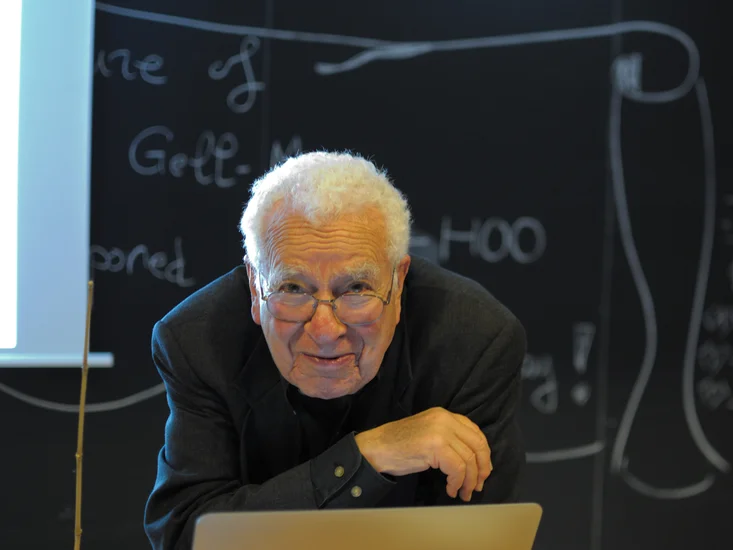
American physicist Murray Gell-Mann was born, later becoming a Nobel Prize laureate for his contributions to particle physics. His theoretical work would fundamentally reshape understanding of subatomic particles.
Gell-Mann’s future development of the quark model would revolutionize modern physics. His discoveries provided the foundation for the Standard Model of particle physics used today.
Cultural and Arts Events on September 15
1954 – Marilyn Monroe’s Iconic Skirt Scene Filmed

Marilyn Monroe’s legendary subway grate scene was filmed for “The Seven Year Itch” in New York City. The iconic moment captured Monroe’s skirt billowing upward as she stood over a subway grate.
This single scene became one of cinema’s most recognizable images and cemented Monroe’s status as a cultural icon. The filming drew massive crowds and generated unprecedented media attention for the Hollywood production.
1915 – New Culture Movement Launches
Chen Duxiu established the influential New Youth magazine in Shanghai, sparking China’s New Culture Movement. The publication promoted democratic ideals, scientific thinking, and cultural modernization.
The magazine challenged traditional Chinese values and promoted Western intellectual concepts. This cultural revolution would profoundly influence Chinese society and contribute to the country’s political transformation.
1907 – Fay Wray Born

Canadian-American actress Fay Wray was born, destined to become one of cinema’s most famous scream queens. Her future starring role would make her an enduring Hollywood legend.
Wray’s unforgettable performance in “King Kong” would define her career and establish her as an iconic figure in film history. Her dramatic talents helped shape the early monster movie genre.
1946 – Oliver Stone Born

American filmmaker Oliver Stone entered the world, later becoming one of cinema’s most controversial and acclaimed directors. His provocative films would challenge audiences and reshape political filmmaking.
Stone’s future works would earn multiple Academy Awards and generate intense cultural debates. His bold directorial vision would influence generations of filmmakers and political discourse.
Religious and Social Events on September 15
1963 – Birmingham Church Bombing Kills Four Children
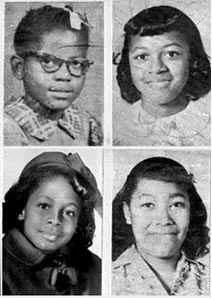
A bomb exploded at the 16th Street Baptist Church in Birmingham, Alabama, killing four young African-American girls. This heinous act shocked the nation and galvanized the Civil Rights Movement.
The bombing represented one of the most tragic episodes of racial violence during the Civil Rights era. The deaths of these innocent children sparked national outrage and accelerated civil rights legislation.
1971 – First Greenpeace Ship Departs
The first Greenpeace vessel departed Vancouver to protest nuclear weapons testing in Alaska. This historic voyage launched the modern environmental movement and established Greenpeace as a global force.
The ship’s mission demonstrated the power of peaceful protest in challenging government policies. This pioneering environmental action would inspire countless ecological campaigns worldwide.
1993 – Pino Puglisi Martyred

Italian priest Pino Puglisi was assassinated by the Mafia in Palermo on his 56th birthday. His murder shocked Italy and highlighted the Catholic Church’s struggle against organized crime.
Puglisi had courageously opposed Mafia influence in his parish and worked to protect young people from criminal recruitment. His martyrdom would lead to his eventual beatification by the Catholic Church.
1975 – Corsica Divided into Two Departments
France officially divided the island of Corsica into two separate departments: Haute-Corse and Corse-du-Sud. This administrative reorganization reflected the island’s unique cultural and political status.
The division aimed to improve local governance and address Corsican autonomy demands. This change represented France’s attempt to balance centralized control with regional identity preservation.
Business and Economic Events on September 15
2008 – Lehman Brothers Files for Bankruptcy
Investment bank Lehman Brothers filed for Chapter 11 bankruptcy, marking the largest bankruptcy in U.S. history. The collapse triggered global financial panic and deepened the worldwide economic recession.
Lehman’s failure sent shockwaves through international financial markets and exposed widespread mortgage securities fraud. The bankruptcy became a defining moment of the 2008 financial crisis and prompted massive government interventions.
1975 – French Corsica Administrative Division
France implemented a major administrative restructuring by dividing Corsica into two separate departments. This bureaucratic change reflected ongoing tensions between centralized French authority and Corsican regional identity.
The reorganization aimed to improve local governance while maintaining French sovereignty over the strategically important Mediterranean island. This administrative shift would influence future debates about regional autonomy within France.
1966 – President Johnson Addresses Gun Control
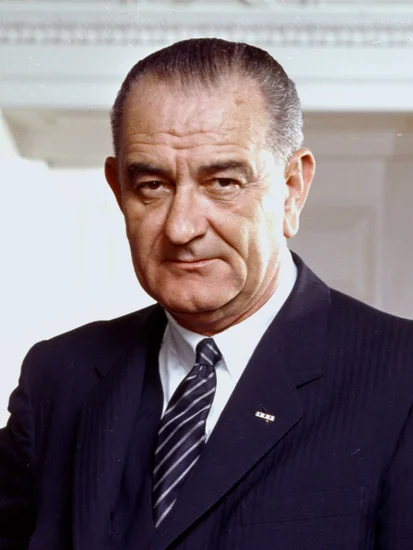
President Lyndon B. Johnson wrote to Congress urging comprehensive gun control legislation following the University of Texas tower shooting. His letter marked a significant federal government response to mass violence.
Johnson’s initiative represented early efforts to address gun violence through legislative action. His congressional appeal would influence ongoing American debates about firearms regulation and public safety.
Transportation and Infrastructure on September 15
1958 – Newark Bay Train Disaster
A Central Railroad of New Jersey commuter train plunged through an open drawbridge into Newark Bay, killing 48 passengers. The tragic accident highlighted serious flaws in railroad safety protocols and bridge operations.
The disaster prompted major improvements in railroad safety systems and bridge coordination procedures. This catastrophic event led to enhanced communication systems between train dispatchers and bridge operators nationwide.
1981 – Historic Steam Locomotive Operates
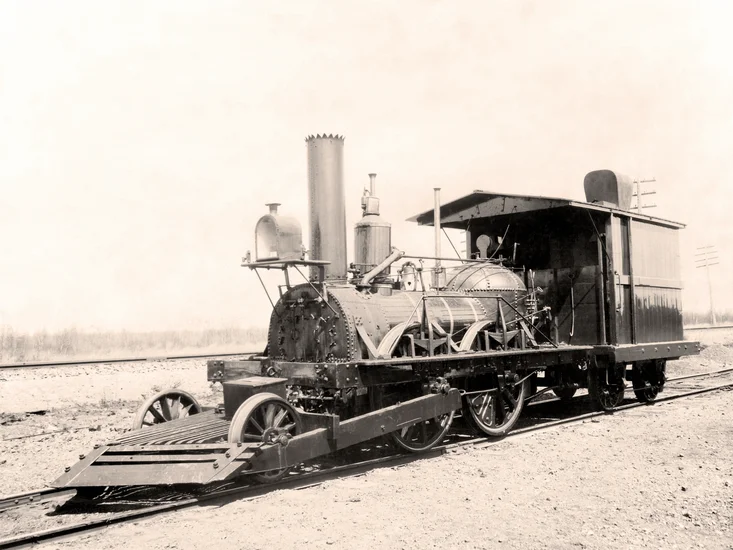
The Smithsonian Institution successfully operated the John Bull steam locomotive under its own power outside Washington, D.C. This achievement made the 1831 locomotive the world’s oldest operable steam engine.
The historic demonstration celebrated American railroad heritage and engineering achievement. The locomotive’s successful operation showcased preservation efforts and highlighted the importance of maintaining technological history.
1945 – Hurricane Destroys Florida Naval Air Station
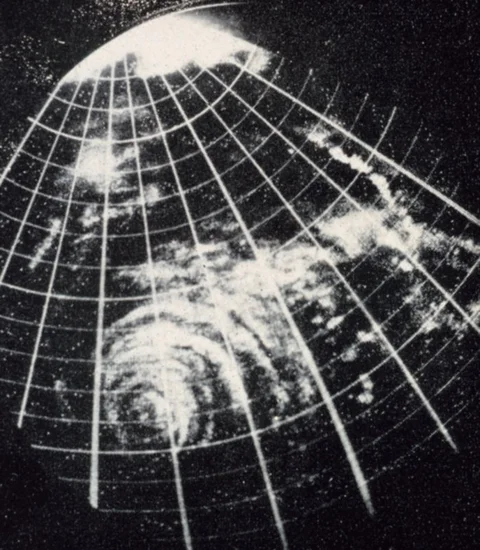
A powerful hurricane struck southern Florida and the Bahamas, destroying 366 aircraft and 25 blimps at Naval Air Station Richmond. The storm caused massive damage to critical military aviation infrastructure.
The hurricane’s destruction significantly impacted U.S. Navy operations in the Caribbean and Atlantic regions. The disaster highlighted the vulnerability of military installations to natural disasters and prompted improved storm preparedness.
1972 – Scandinavian Airlines Flight Hijacked
A Scandinavian Airlines System domestic flight from Gothenburg to Stockholm was hijacked and diverted to Malmö Bulltofta Airport. The incident reflected growing international concerns about aviation security.
The hijacking demonstrated the need for enhanced airport security measures and international cooperation in combating air piracy. This event contributed to the development of modern aviation security protocols.
Sports and Recreation on September 15
1978 – Muhammad Ali Wins Third Heavyweight Title
Muhammad Ali defeated Leon Spinks at the Superdome in New Orleans, becoming the first boxer to win the world heavyweight championship three times. This historic victory cemented Ali’s status as boxing’s greatest champion.
The triumph demonstrated Ali’s remarkable resilience and enduring athletic prowess despite advancing age. His third championship validated his claim as “The Greatest” and inspired athletes across all sports.
2004 – NHL Lockout Announced
NHL Commissioner Gary Bettman announced a complete lockout of the players’ union and cessation of league operations. The work stoppage would ultimately cancel the entire 2004-05 NHL season.
The lockout represented the most severe labor dispute in major North American professional sports history. The conflict highlighted fundamental disagreements about salary caps, revenue sharing, and player compensation structures.
2001 – Alex Zanardi’s Tragic Accident
Former Formula One driver Alex Zanardi suffered a horrific accident during a CART race at Germany’s Lausitzring, resulting in the amputation of both legs. The crash shocked the international motorsports community.
Zanardi’s accident led to significant safety improvements in open-wheel racing and demonstrated the ongoing dangers faced by professional drivers. His subsequent recovery and return to competitive racing would inspire millions worldwide.
1934 – Fausto Coppi Born
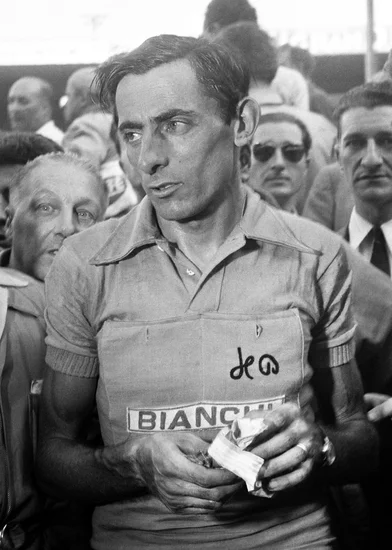
Italian cyclist Fausto Coppi was born, destined to become one of cycling’s greatest champions. His future achievements would revolutionize professional cycling and establish new standards of athletic excellence.
Coppi’s innovative training methods and competitive spirit would influence generations of cyclists. His legendary rivalry with Gino Bartali would captivate Italy and elevate cycling to unprecedented popularity.
Notable Births on September 15
1946 – Tommy Lee Jones Born

American actor Tommy Lee Jones entered the world in San Saba, Texas, beginning a journey toward Hollywood stardom. His intense screen presence and distinctive voice would define countless memorable characters.
Jones’s future Academy Award-winning performances would establish him as one of cinema’s most respected character actors. His versatility across genres from westerns to thrillers would span decades of acclaimed work.
1984 – Prince Harry Born

Prince Harry, Duke of Sussex, was born as the younger son of Prince Charles and Princess Diana. His birth captured global attention and secured his position as sixth in line to the British throne.
Harry’s future military service and charitable work would define his public persona beyond royal duties. His eventual marriage to Meghan Markle would bring both celebration and controversy to the royal family.
1929 – Cannonball Adderley Born

American jazz saxophonist Julian “Cannonball” Adderley was born in Tampa, Florida, destined to become one of jazz’s most influential performers. His soulful alto saxophone style would help define the hard bop movement.
Adderley’s future collaborations with Miles Davis and his own successful quintet would earn him legendary status. His accessible yet sophisticated approach would introduce countless listeners to jazz music.
1977 – Tom Hardy Born

English actor Tom Hardy was born in Hammersmith, London, beginning a path toward international acclaim. His transformative performances and physical commitment to roles would distinguish him among contemporary actors.
Hardy’s future work in films like “Mad Max: Fury Road” and “The Dark Knight Rises” would establish him as a versatile leading man. His dramatic range and intense screen presence would earn critical acclaim worldwide.
1946 – Oliver Stone Born

American filmmaker Oliver Stone entered the world in New York City, later becoming one of cinema’s most provocative directors. His controversial films would challenge audiences and reshape political moviemaking.
Stone’s future works including “Platoon” and “JFK” would earn multiple Academy Awards while generating intense cultural debates. His bold directorial vision would influence generations of filmmakers and political discourse.
Notable Deaths on September 15
1945 – Anton Webern Killed

Austrian composer Anton Webern was tragically shot and killed by an American soldier in Mittersill, Austria. The Second Viennese School pioneer died at age 61 in a case of mistaken identity.
Webern’s innovative twelve-tone compositions had revolutionized modern classical music despite their brief duration. His death represented an immense loss to contemporary music and the avant-garde compositional movement.
1973 – King Gustaf VI Adolf of Sweden Dies
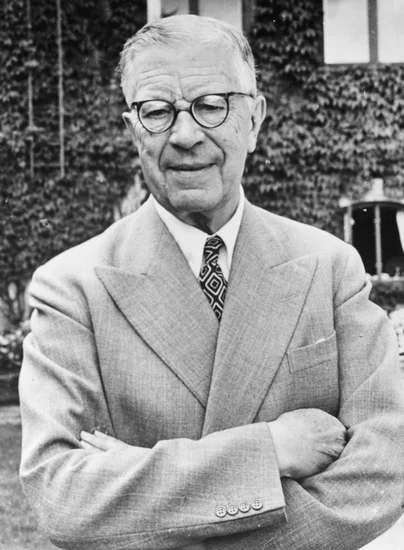
Gustaf VI Adolf of Sweden passed away at age 90, ending a 23-year reign marked by modernization and democratic reform. His death concluded the Bernadotte dynasty’s longest-serving monarch’s peaceful rule.
The king’s passing marked the end of an era for Swedish monarchy and European royalty. His successor Carl XVI Gustaf would continue Sweden’s evolution toward a more ceremonial constitutional monarchy.
2004 – Johnny Ramone Dies

Johnny Ramone, guitarist and founding member of the influential punk rock band The Ramones, died of prostate cancer at age 55. His death marked the end of an era for punk rock music.
Ramone’s distinctive three-chord guitar style and aggressive stage presence had helped create the punk rock template. His passing left The Ramones as one of the most influential bands in rock history.
2008 – Richard Wright Dies

Richard Wright, keyboardist and founding member of Pink Floyd, died of lung cancer at age 65. His death removed one of progressive rock’s most innovative and influential musicians.
Wright’s atmospheric keyboard work and vocals had been integral to Pink Floyd’s revolutionary sound on albums like “The Dark Side of the Moon.” His contributions helped define the psychedelic and progressive rock movements.
2019 – Ric Ocasek Dies

Ric Ocasek, lead singer and songwriter of The Cars, died at age 75 in New York City. His death marked the loss of one of new wave music’s most distinctive voices and innovative songwriters.
Ocasek’s blend of punk energy with pop sensibility had helped define 1980s rock music. His production work with other artists and The Cars’ enduring popularity cemented his legacy in rock history.
Holidays and Observances on September 15
Battle of Britain Day
The United Kingdom commemorates Battle of Britain Day, honoring the Royal Air Force pilots who defended Britain against the Luftwaffe in 1940. This observance recognizes the crucial aerial battle that prevented German invasion.
The day celebrates the heroism of “The Few” who protected British airspace during World War II’s darkest hours. Veterans, military personnel, and civilians gather to remember this pivotal moment in British and world history.
International Day of Democracy
The United Nations observes International Day of Democracy to promote democratic values and principles worldwide. This global observance encourages civic participation and democratic governance across all nations.
The day highlights democracy’s importance in protecting human rights and promoting sustainable development. Educational programs and public events worldwide celebrate democratic achievements while addressing ongoing challenges to democratic institutions.
Our Lady of Sorrows

The Catholic Church celebrates the feast of Our Lady of Sorrows, commemorating the Virgin Mary’s sufferings during Christ’s passion. This solemn observance reflects on Mary’s grief and her role in Christian redemption.
Devotees worldwide participate in special masses and prayers honoring Mary’s sorrows. The feast day encourages reflection on suffering’s spiritual significance and Mary’s example of faith during adversity.
World Lymphoma Awareness Day
International health organizations observe World Lymphoma Awareness Day to educate the public about lymphoma cancers and promote early detection. This global initiative raises awareness about blood cancer symptoms and treatment options.
Medical professionals and patient advocacy groups worldwide organize educational events and screening programs. The observance emphasizes the importance of research funding and support for lymphoma patients and their families.
